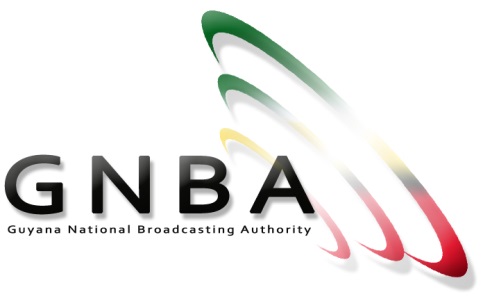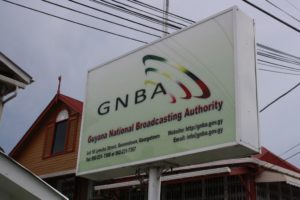Guyana Press Association has misled Guyanese ( PSAS/PSP/PSB)
Dear Editor,
I am writing as I am very concerned that the Guyana Press Association (GPA) has not only misled the Guyanese citizenry but also their international counterparts – Reporters without Borders and the Association of Caribbean Media Workers (ACM). As reported in Kaieteur News, “The GPA strongly opposed the government seeking to redefine what constitutes ‘public service programmes’ as this redefinition is in direct contradiction and violation of the letter and spirit of the definition of public service broadcasting as is laid down by the United Nations Educational Scientific and Cultural Organisation (UNESCO) of which Guyana is a member.” The GPA then quoted what exactly ‘public broadcasting’ is according to UNESCO. (3 August, 2017).
I wish to point out however that public service programmes (PSPs) and public service broadcasting (PSB) is not one and the same and therefore there was no attempt to redefine the concepts. A Google search can easily highlight the distinction but I will provide much researched information. Public service programmes or public service announcements (PSAs), as they are also known, are utilized where governments wish to communicate with citizens through the media to achieve a particular public policy goal. It is not limited to governments; some countries allow non-governmental organisations to air certain PSAs free of charge.
PSAs are to be positive and from credible sources of information and are subject to advertising rules. More importantly, these announcements are not ‘free’ advertising meaning given their value, nature and the purpose of the information therein they are a valuable public service and are not just a means to promote a government’s or organisation’s image. So, essentially, PSPs or PSAs are a tool to transmit information to the public. The legal basis for them is that broadcasters must serve “the public interest”.
It is necessary to point out the factors which led to the development of public service broadcasting otherwise doing what the GPA has done, quoting from the UNESCO website, without more, is likely to cause confusion or mislead. There are different models of PSB but the concept developed due to the inherent weaknesses of the two dominant broadcasting systems—the state-controlled broadcasting model and the profit-oriented commercial model. It was found that the public interest in broadcasting could not be served by the interests of private entrepreneurs primarily looking for profit neither the State because of people’s suspicion.
The public-service model, therefore, it can be argued, arose from the mistrust of both systems to fulfill certain broadcasting goals of informing, educating and entertaining. So simply put, PSB is a broadcasting system essentially by the people for the people and an alternative to the profit oriented commercial broadcasting system and the state-controlled broadcasting system. In fact, many countries use it along with community radio to widen the broadcast landscape and to bring balance. Public service broadcasting involves carrying PSAs.
Given the foregoing, it is clear that the GPAs lack of understanding of the difference between these two concepts negates most, if not all, of their bases for opposing the amendments to the Broadcasting Act, 2011. To argue that the airing of PSAs would “disrupt and violate contractual obligations that stations will have with advertisers and program sponsors” is not only lopsided but emphasizes the lack of understanding of broadcasting, broadcasters obligation to the public and to broadcast in the public interest. The GPA has deliberately knowing or unknowingly sided with a model of broadcasting which is outdated and lacks balance and is an affront to the rights of the public – the profit oriented commercial broadcast system.
It would be remiss of me not to site the Broadcasting Act which provides at section 18(2) that among the functions of the Guyana National Broadcasting Authority (GNBA) is to “require licensees to carry information on any programmes issued by the Civil Defence Commission, the Guyana Police Force, Guyana Fire Service and or health services, and certain other programmes as public information deemed appropriate and necessary in terms of national security, emergency and disaster as a public service at no cost.” The power to require the PSAs is in the existing legislation of 2011 and therefore the amendment is an attempt to bring clarity by clearly setting certain obligations for PSAs.
This, to my mind, is a good way to determine whether licensees are compliant and to determine whether the GNBA is exceeding its power by requiring more than is established by law and without valid reasons. It seems to me to be an attempt to bring some much-needed balance and accountability to our broadcasting landscape by ensuring that licensees honour their obligations and the conditions of their licence and that the GNBA does not exceed its power. In terms of balance, the Broadcasting Act is also very clear at section 2 where it provides that this Act shall provide, among other things, balanced information for the Guyanese public.
Therefore, any strong opposition the GPA has should have been raised prior to the enactment of the Broadcasting Act in 2011and that opposition should have at least recognized that the power granted to the GNBA under section 18 was vague and needed to clarified otherwise it can lead to confusion and abuse by both the GNBA and licensees. Contrary to the GPAs shuddering thought that it hoped that Prime Minister Nagamootoo did not provide the Cabinet with bad advice on what constitutes PSPs, it is the GPA representatives who do not understand the concept.
In closing, therefore, the comments and calls by Reporters without Borders and the Association of Caribbean Media Workers (ACM) are unfounded because of their apparent reliance on the information provided by the GPA. I submit that, the amendments now under public and international scrutiny all seem to be based on existing provisions in the Broadcasting Act, 2011, so the uproars that are now taking place were due back then. As an independent body it is expected that the GPA would indeed be independent, conduct its own research and not rely on the noises of the Opposition which seems to have vested interests in some broadcasting licenses.
Concerned Guyanese
Featured in the Kaieteur Newspaper- August 13, 2017



